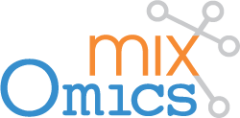The next iteration of the course will be in September 2023 for a likely duration of 6-8 weeks (it will be advertised 3 months before opening the course). This course is online, but at your own pace, meaning that you need to dedicate enough time (5-8h per week) to fully benefit from the program.
Feedback from the 2022 iteration:
- You can do it at your own time since the resources provided (Webinars and reading material) are very helpful. Due to working hours I had to watch/read on demand (at my own time)
- Kim-Anh has done a very good job in the webinars and was generally approachable and helpful. Thank you! The online course material was very good and explained the basics of the program quite well. The integration with the mixOmics online material and sample cases is very helpful.
- It had the option to attend live webinars (two offered times) or watch recordings. – The possibility to ask questions was available for both live webinars and stack. – The assignments are designed to enhance further learning allowing to use of either own data or provided data at different challenge skills.
- Course organisers were very responsive to our questions in Slack. Modules flowed nicely and were well organised. Webinars were useful.
This is our second round of online course ‘mixOmics R Essentials for Biological Data Integration‘ that includes 4 weeks of asynchronous learning (with one live summary + Q&A per week), numerous chats on Slack and an additional 3 weeks to complete the assignment. Some feedback from our last round can be found here. Our last survey seem to suggest most learners spent between 5-8h per week on the program.
- Teaching Period Dates, asynchronised:
- Start – Monday, 31st October 2022
- End – Sunday, 27th November 2022
- (non marked) Assessment due Sunday, 9th December 2022
- Peer-review of assessment due Sunday, 16th December 2022
- Live Q&A 5:30pm AEST (recorded)
- Thursday 3rd November, time converter
- Thursday 10th November, time converter
- Thursday 17th November, time converter
- Thursday 24th November, time converter
- Fees vary for
- Research Higher Degree students enrolled at a University: $495 AUD (incl. GST)
- Staff and members from Universities & Not-for-profit organisations: $825 (incl. GST)
- Other industries: $1320 AUD (incl. GST)
- discounts of 5% for a group of 3-9 learners and 10% for 10+ learners, however, this will require a single invoice per group.
(these funds go towards the support of a software developer to maintain the package)
Information about the course and registration: https://study.unimelb.edu.au/find/short-courses/mixomics-r-essentials-for-biological-data-integration/
The number of places is limited, so first come first serve (we aim to run this course twice a year).
What if I need an invoice? Contact Student Support at continuing-education[at]unimelb.edu.au
Prerequisites. A good working knowledge in R programming (e.g. handling data frame, perform simple calculations and display simple graphical outputs) is essential to fully benefit from the course*. The course is divided into theory (50%) and hands-on practice, with the opportunity to analyse your own data. The exercises and assignments are in R. Participants are encouraged to use RStudio and Rmarkdown (template and R code provided).
- For those looking for an R refresher well ahead of the course:
- https://monashdatafluency.github.io/r-intro-2/index.html
- the R cheatsheets for reference: https://iqss.github.io/dss-workshops/R/Rintro/base-r-cheat-sheet.pdf
*Learners who are not proficient in R do not get the full benefit of the course (based on their own, honest, feedback!)
